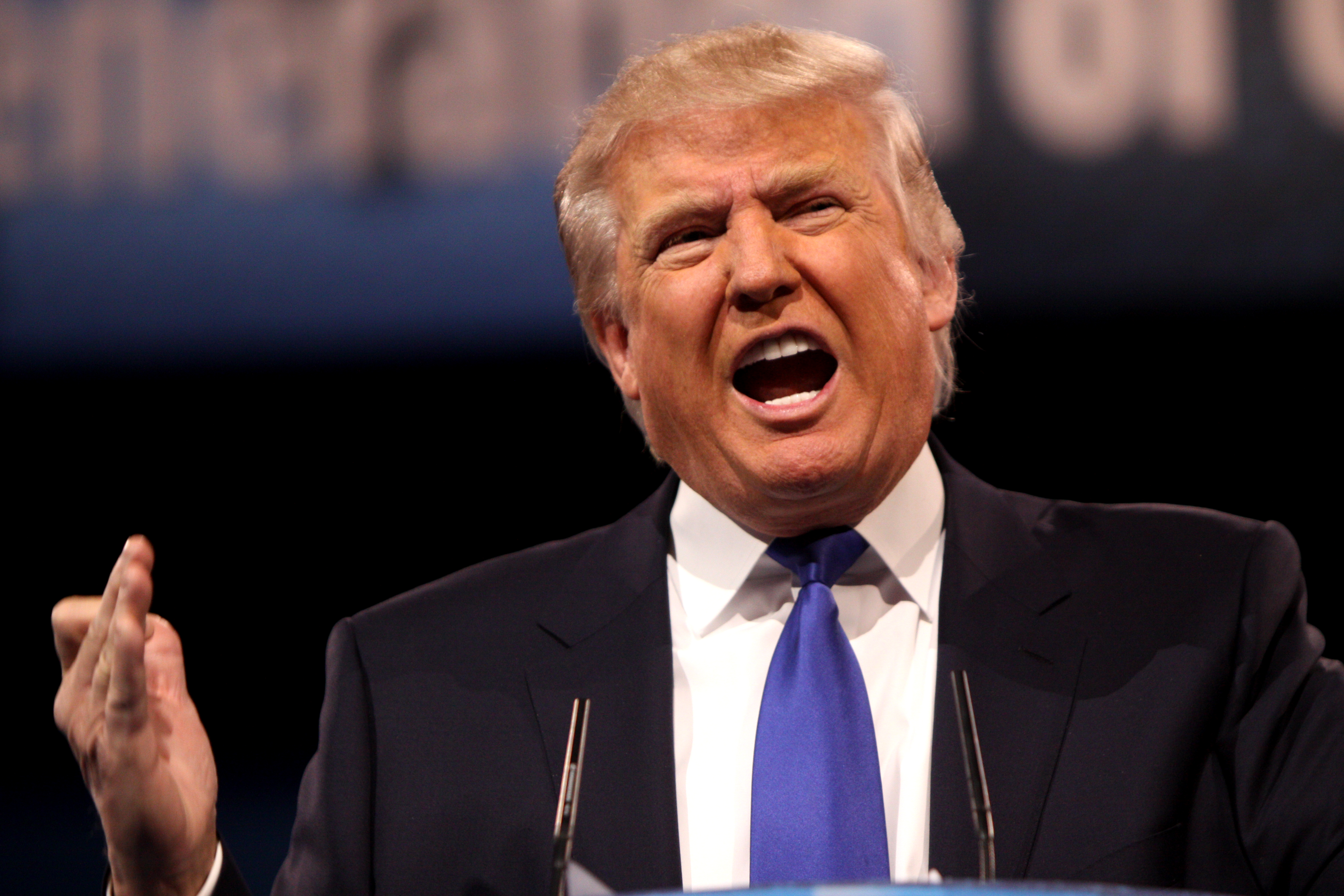“No one remembers who came in second.” That’s a quote from the late pro golfer Walter Hagen, tweeted, ironically enough, by Republican presidential candidate Donald Trump back in 2013.
After months of incessantly touting his lead in the polls, Trump lost Monday’s Iowa Republican caucus — the first nominating contest of the year — to Sen. Ted Cruz of Texas, who captured 27.6 percent of the vote compared to Trump’s 24.3 percent share. In a twist, Florida Sen. Marco Rubio’s strong showing among voters who made up their minds in the final days leading up to the caucus catapulted him past other candidates from the establishment wing of the party to an impressive third-place finish — cementing the first-term senator’s spot in the top tier and wresting momentum away from Trump.
But in this oddity of an election cycle, all trends, truisms and conventional wisdoms have been supplanted by one certitude: No matter what he says or does, “the Donald” will steal the spotlight.
After all, with everything Trump, the story of his campaign is “yuge” — and will likely serve as fodder for political science textbooks for years to come. A debilitatingly narcissistic, pseudo-fascistic cartoon character of a man with zero public policy experience to speak of and a penchant for disrespecting entire genders, races and religions appears to have come close to capturing the nomination for one of the United States’ two major parties. But despite the worryingly sizable segment of the U.S. population that is sympathetic to Trump’s brand of racially charged working-class populism, there are many reasons to think his campaign for the GOP nomination will eventually crumble.
Although Trump holds a substantial lead in recent national polls, changes in the way delegates are awarded in many state primaries significantly complicate his path to locking up the 1,237 delegates needed to clinch the GOP nomination outright. In many states, including populous states like California and New York, delegates are awarded in proportion to the percentage of the vote a candidate receives. If one candidate were to somehow secure 40 percent of the delegates awarded prior to March 1 — a very unlikely feat, considering how sharply divided voters are among Cruz, Rubio and Trump — he or she would have “less than one-half of the necessary delegates to win the nomination,” according to an analysis by The Wall Street Journal. If other candidates can continue to win a significant chunk of the vote, Trump will be denied a victory before the GOP convention in July.
Even if he wins a plurality of all GOP voters, Trump faces significant hurdles to winning the nomination. In an interview with The Washington Post in December, Trump himself acknowledged he would “be disadvantaged” in a contested convention in which Republican insiders laser-focused on winning in the general election would almost certainly opt for another candidate.
Republican voters harbor deep anxieties about imagined threats to America’s cultural identity, but they are also devout, pragmatic and principled. However, not all GOP voters share any one of these traits. Republicans aren’t a homogeneous bunch, and primary voters have many reasons to vote for candidates not named Trump.
With 62 percent of Americans holding an unfavorable view of Trump in a recent Washington Post-ABC poll, Republicans who actually like winning elections are terrified at the prospect of him representing their party in November. Conversely, as a fresh-faced, charismatic first-term senator who is comfortable lapsing into Spanish on the campaign trail, Rubio excites GOP voters who believe he could offer a sharp contrast to Hillary Clinton in the fall and siphon away Latino voters from the
Democratic party.
To his credit, Cruz is nothing if not ideologically consistent, which allowed him to win the vote of 43 percent of Iowa caucusgoers who described themselves as “very conservative.” And since launching his campaign at Liberty University in March, Cruz has deftly woven his faith and passion for religious liberty into speeches, events and debate appearances. His efforts paid off among Iowa evangelicals, a third of whom supported him Monday night. Cruz’s consistent conservatism and appeal among religious voters leaves him well positioned to poach supporters from Ben Carson or Rand Paul.
Trump, on the hand, has little to offer but bluster, braggadocio and an endless supply of semicoherent (and often racist) ramblings about restoring American greatness — often interspersed with bizarre taunts, faces and gestures. As entertaining as this circus has been for all of us, it simply isn’t enough to win the support of enough
GOP voters.
Charlie Bulman is a senior government and politics major. He can be reached at cbulmandbk@gmail.com.



